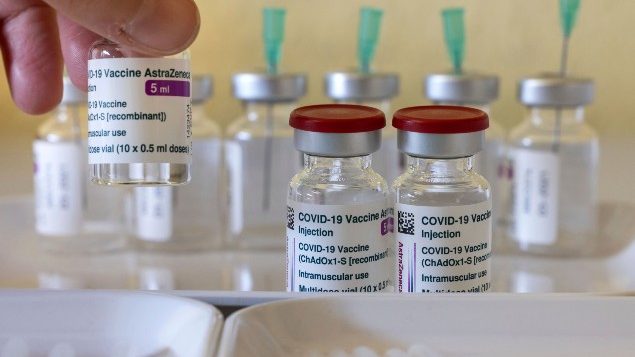Canadians have heard two conflicting recommendations from Canada’s health authorities over the use of the AstraZeneca vaccine in people 65 years and older. On Feb. 26, 2021, the Public Health Agency of Canada approved the use of the AstraZeneca vaccine for all adults in Canada. This came as a huge relief because Canada is lagging behind developed countries in receiving and administering vaccines to protect against COVID-19. After deliveries of vaccines from Pfizer and Moderna trickled to a near halt at the beginning of 2021, they picked up at the end of February and there are campaigns to administer them across the country.
With the approval of the AstraZeneca vaccine, doses are expected to arrive on March 3. But on March 1, Canada’s National Advisory Committee on Immunizations (NACI) recommended this vaccine not be used on people 65 years and older because there were not enough people of that age group included in the clinical trials. Several European countries have expressed similar concerns, but are in the process of studying real life experiences with the AstraZeneca vaccine, as is the United States. This vaccine has been used extensively in the U.K. and other countries and it has proven to be highly effective in reducing severe illness, hospitalization and death and to be safe for adults. The UN’s World Health Organization is recommending the AstraZeneca vaccine be used for all adults.
Acknowledging this, the Public Health Agency of Canada reiterated its position that “the best vaccine for Canadians is the one that they can get.” However, Canada’s Chief Public Health Officer Dr. Teresa Tam said it is up to provinces and territories to decide how to use the AstraZeneca vaccine. She suggested they may choose to give that vaccine to younger people who would have had to wait longer since most health authorities are inoculating their oldest citizens first.

- On Feb. 26, 2021, Canada’s Chief Medical Adviser Dr. Supriya Sharma told Canadians to get any vaccine that is offered, but an advisory committee is recommending against using the AstraZeneca vaccine on those 65 years and older. (Sean Kilpatrick/The Canadian Press)
Wide variations in who gets vaccinated and when
In Canada, there are 6.8 million people who are 65 years or older out of a population of 38 million. Because health care falls under the jurisdiction of provincial and territorial governments it is they who will decide which advice to follow regarding the AstraZeneca vaccine. Experience so far has shown wide variations in who gets inoculated and when not only between provinces and territories but also within them. Some 500,000 doses of AstraZeneca vaccine manufactured in India are expected to arrive in Canada on March 3, 300,000 of which must be used by April 1. So, provinces and territories will have to decide quickly who will be inoculated with them. Some may choose to use the AstraZeneca product on adults under the age of 65. Others may decide to go ahead and use it on all adults.
Tam said health authorities in Canada and the world are studying the vaccines on an on-going basis and sharing results. She said the advisory council may changes its recommendation on the AstraZeneca based new information. It is also studying the efficacy of the intervals between vaccine doses. Some provinces have decided to extend the lapse beyond what the manufacturers recommend in order give as many people a first dose and its initial protection as soon as possible. Canadian scientists are also gathering information and studying the efficacy of using doses from two different vaccines on individuals.
Meanwhile, Canadians are wondering whether they should take into account the fact that the Pfizer and Moderna vaccines have an efficacy rate of over 90 per cent while the AstraZeneca one’s is 63 per cent. The Public Health Agency of Canada has emphasized that all of these vaccinations will work well to prevent hospitalization and death, and that people should not hesitate to get whichever vaccine they are offered. Health authorities are anxious to inoculate as many people as quickly as possible to try to achieve herd immunity and stymie the spread of COVID-19. The last thing they want is for people to hesitate and postpone being vaccinated.
Vaccine deliveries are ramping up rapidly in Canada. About 444,600 Pfizer vaccines are expected this week in addition to the half-million AstraZeneca doses. Next week, the week of March 8, Pfizer and Moderna deliveries should amount to 900,000. Millions will of doses will be added in the second and third quarters of 2021 say officials adding that Canada is on target to keep its promise to inoculate anyone who wants it by the end of September 2021.







For reasons beyond our control, and for an undetermined period of time, our comment section is now closed. However, our social networks remain open to your contributions.